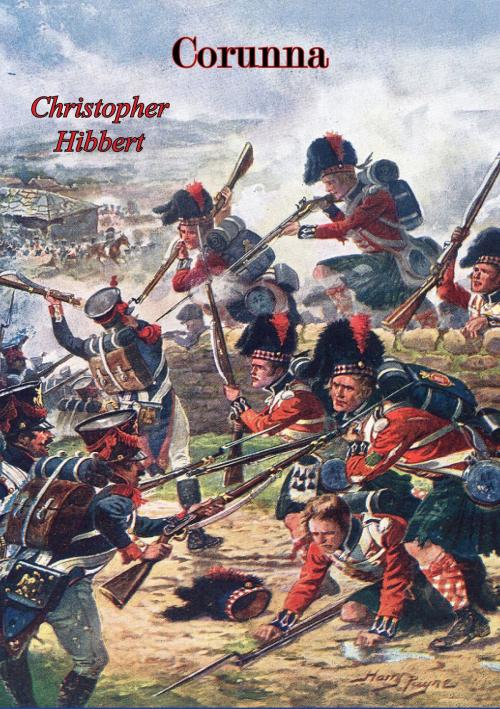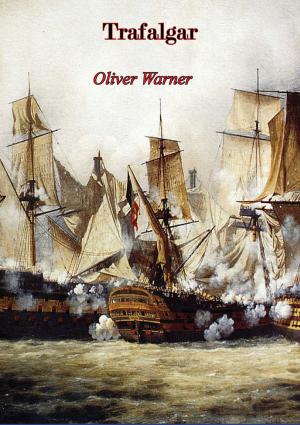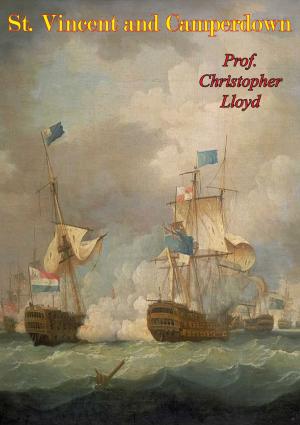| Author: | Christopher Hibbert | ISBN: | 9781787206687 |
| Publisher: | Friedland Books | Publication: | July 11, 2017 |
| Imprint: | Friedland Books | Language: | English |
| Author: | Christopher Hibbert |
| ISBN: | 9781787206687 |
| Publisher: | Friedland Books |
| Publication: | July 11, 2017 |
| Imprint: | Friedland Books |
| Language: | English |
‘Not a drum was heard, not a funeral note,
As his corse to the rampart we hurried.’
—from ‘The Burial of Sir John Moore at Corunna’ by Charles Wolfe
One of the best remembered poems in the English language has served to keep alive the memory of Sir John Moore and of his burial at Corunna on 17 January, 1809. The story of the battle which he fought on the previous day and of the short campaign and horrifying retreat which preceded it is, however, not so well known.
The Battle of Corunna saved a British army from annihilation and resulted in the tragic death of one of England’s finest generals. Setting out from Lisbon in the autumn of 1808, Sir John Moore had marched his army into Spain against Napoleon and by a daring manoeuvre had thrown it across the line of French communications. But, having thus drawn off Napoleon’s army from Madrid, Moore found himself so outnumbered and with no hope of assistance from the ineffectual Spanish armies, that he decided to withdraw to the coast. After a 250-mile retreat across the mountains of Galicia under appalling weather conditions, with inadequate food supplies and the French hard on his heels, he eventually reached the port of Corunna. Here he turned and drew up his depleted forces to face Marshal Soult’s massive army; and, though mortally wounded in the ensuing battle, he lived long enough to learn that the French had been checked and that his own army would be able to embark in safety.
In Corunna extensive use is made of the many eyewitness accounts which survive in the form of official despatches, histories, diaries, memoirs and letters. With the aid of these, Christopher Hibbert not only shows a remarkable understanding of John Moore and his fellow officers, of their conflicting characters and views, but also provides a horrifying picture of the hardships of this brief and bitter campaign.
‘Not a drum was heard, not a funeral note,
As his corse to the rampart we hurried.’
—from ‘The Burial of Sir John Moore at Corunna’ by Charles Wolfe
One of the best remembered poems in the English language has served to keep alive the memory of Sir John Moore and of his burial at Corunna on 17 January, 1809. The story of the battle which he fought on the previous day and of the short campaign and horrifying retreat which preceded it is, however, not so well known.
The Battle of Corunna saved a British army from annihilation and resulted in the tragic death of one of England’s finest generals. Setting out from Lisbon in the autumn of 1808, Sir John Moore had marched his army into Spain against Napoleon and by a daring manoeuvre had thrown it across the line of French communications. But, having thus drawn off Napoleon’s army from Madrid, Moore found himself so outnumbered and with no hope of assistance from the ineffectual Spanish armies, that he decided to withdraw to the coast. After a 250-mile retreat across the mountains of Galicia under appalling weather conditions, with inadequate food supplies and the French hard on his heels, he eventually reached the port of Corunna. Here he turned and drew up his depleted forces to face Marshal Soult’s massive army; and, though mortally wounded in the ensuing battle, he lived long enough to learn that the French had been checked and that his own army would be able to embark in safety.
In Corunna extensive use is made of the many eyewitness accounts which survive in the form of official despatches, histories, diaries, memoirs and letters. With the aid of these, Christopher Hibbert not only shows a remarkable understanding of John Moore and his fellow officers, of their conflicting characters and views, but also provides a horrifying picture of the hardships of this brief and bitter campaign.















